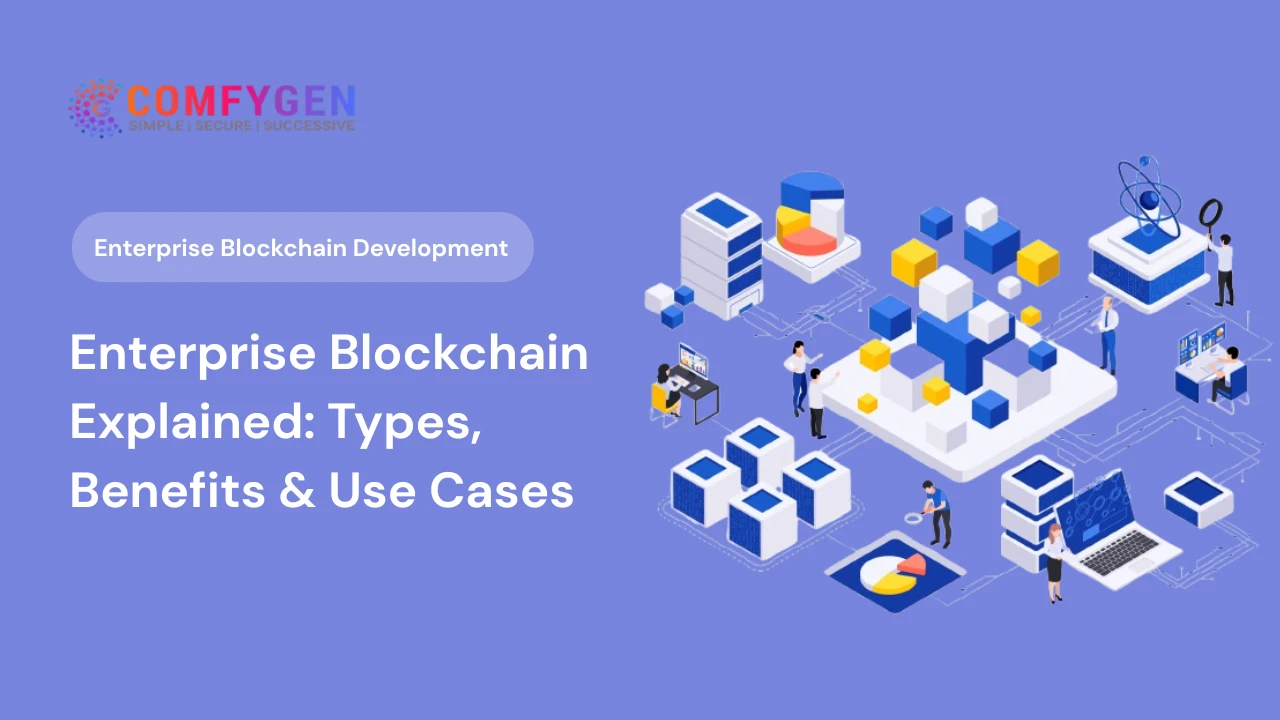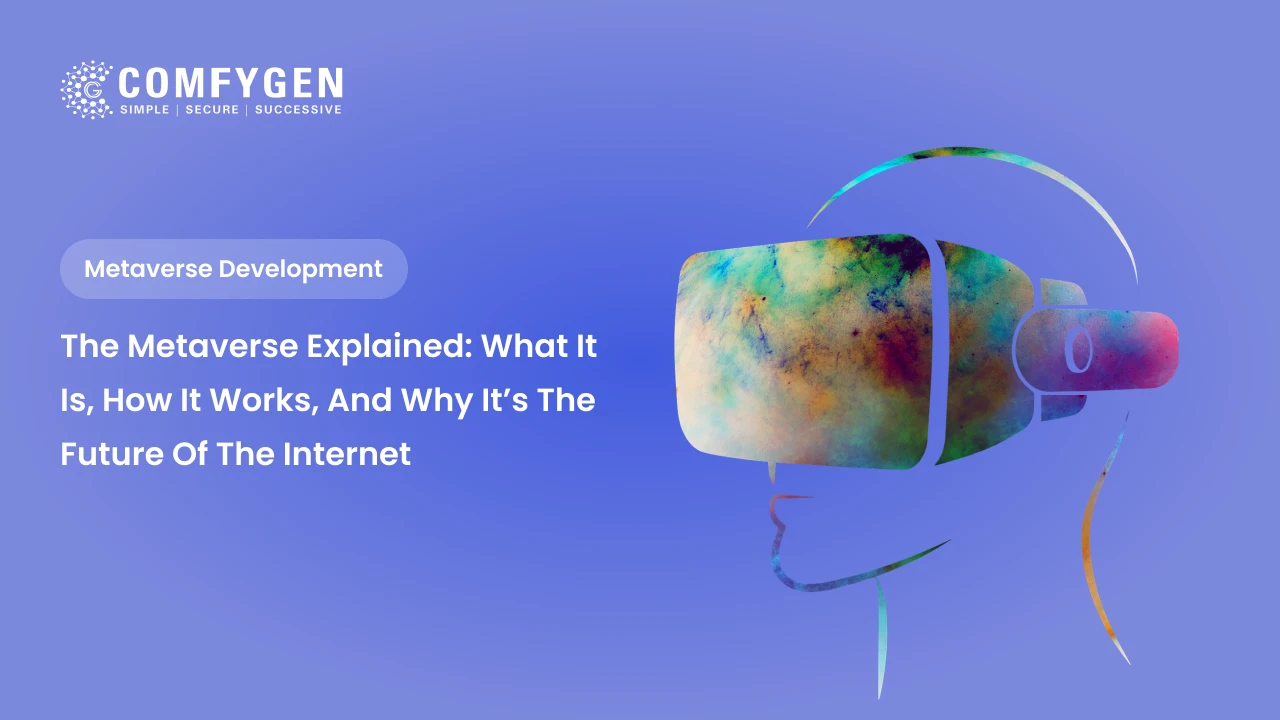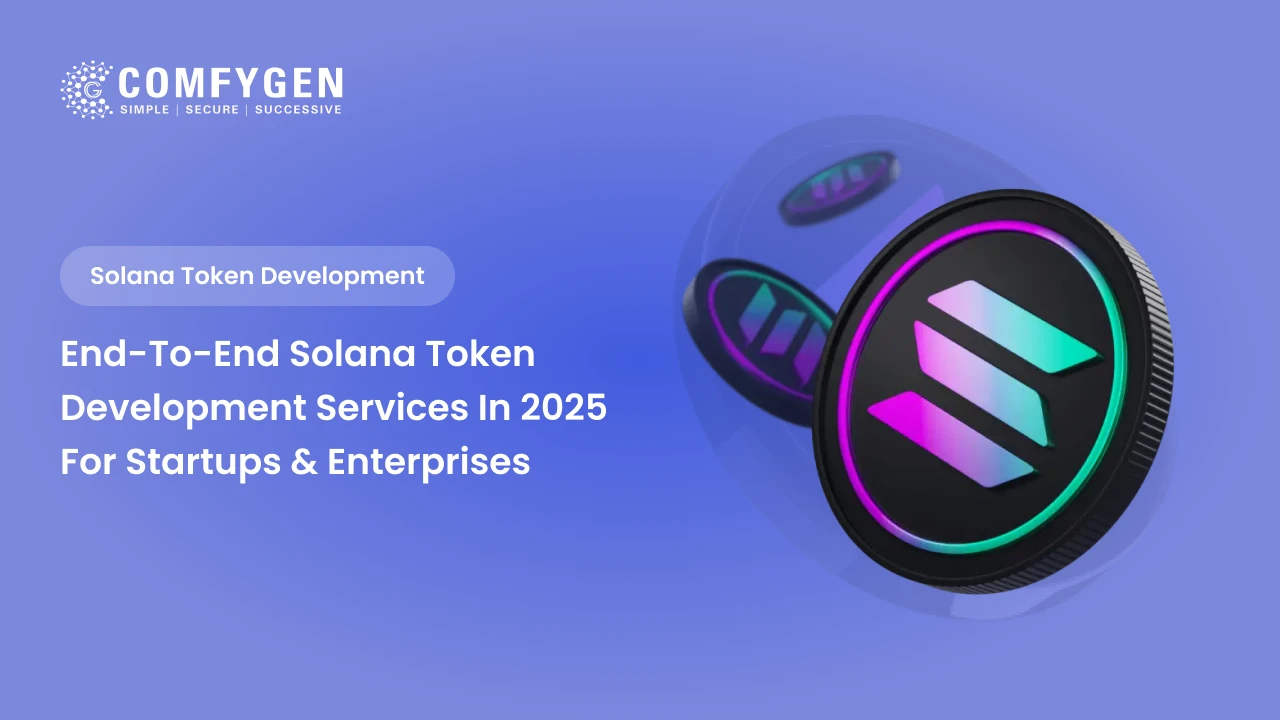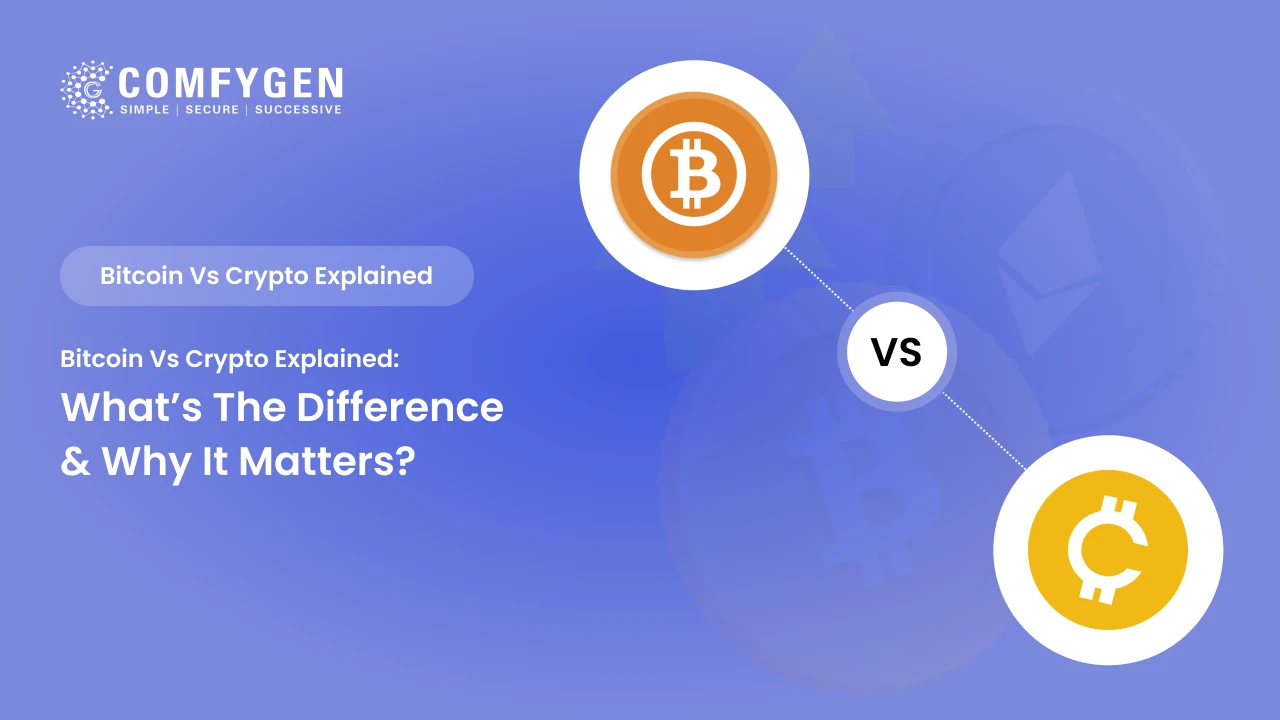Enterprise Blockchain Explained: Types, Benefits & Use Cases
Introduction to Enterprise Blockchain
In today’s digital-first world, enterprises are constantly seeking innovative technologies to boost efficiency, security, and transparency. One such transformative technology is enterprise blockchain. Unlike public blockchains like Bitcoin or Ethereum, enterprise blockchain solutions are tailored to meet the unique demands of modern businesses, offering permissioned access, higher throughput, and robust privacy features.
As a leading enterprise blockchain development company, Comfygen helps businesses integrate blockchain technology into their operations to reduce costs, streamline workflows, and stay ahead of the competition.
What is Enterprise Blockchain?
Enterprise blockchain refers to blockchain platforms designed specifically for organizational use. These are permissioned networks where only authorized participants can access and validate transactions. Unlike public blockchains, enterprise blockchains focus on security, scalability, governance, and regulatory compliance, making them ideal for industries like finance, supply chain, healthcare, and insurance.
In essence, enterprise blockchain brings the benefits of decentralization, like transparency and immutability, into a controlled business environment.
Evolution of Blockchain in Enterprises
Blockchain technology has evolved significantly since the launch of Bitcoin in 2008. Here’s how the journey has unfolded:
First Generation
Bitcoin introduced the concept of decentralized digital currency and immutable ledgers.
Second Generation
Ethereum revolutionized the space with smart contracts, enabling programmable transactions.
Third Generation
Platforms like Hyperledger Fabric, R3 Corda, and Quorum have been developed for enterprise-grade scalability, privacy, and compliance.
Build Secure,
Scalable Enterprise Apps.
Contact Now
Key Features of Enterprise Blockchain
Here are some defining features of enterprise blockchain solutions:
- Permissioned Access: Only verified participants can join the network, ensuring security and compliance.
- Scalability: Designed for high transaction volumes across large organizations.
- Interoperability: Seamless integration with existing enterprise systems like ERP or CRM.
- Consensus Mechanisms: Customizable for business needs, allowing faster and energy-efficient validation.
- Immutability: Data cannot be tampered with once recorded, ensuring auditability and trust.
Types of Enterprise Blockchains
Different types of enterprise blockchains serve different purposes. Here’s a breakdown:
1. Private Blockchain
Used within a single organization. Offers complete control and privacy. Examples include Hyperledger Fabric.
2. Consortium Blockchain
Shared among a group of trusted organizations. Common in sectors like banking and supply chain (e.g., R3 Corda).
3. Hybrid Blockchain
Combines public and private elements. Offers selective transparency. Suitable for businesses that want flexibility and control.
4. Federated Blockchain
Similar to a consortium but with enhanced governance rules. Offers faster transactions and increased efficiency.
5. Public Blockchain
Though not typical for enterprises, some companies use public blockchains for transparency or tokenization (e.g., Ethereum, Polygon).
Enterprise Blockchain vs Public Blockchain
| Feature | Enterprise Blockchain | Public Blockchain |
|---|---|---|
| Access Control | Permissioned | Open to anyone |
| Speed & Scalability | High throughput | Limited (slower consensus) |
| Privacy | Controlled | Transparent |
| Governance | Centralized or consortium-led | Community-based |
| Use Case | Business workflows | Cryptocurrency, DeFi |
Top Benefits of Enterprise Blockchain Development
Enhanced Security
- Cryptography and decentralization make data tamper-proof.
- Eliminates single points of failure.
Increased Efficiency
- Automates manual workflows.
- Reduces paperwork and delays.
Faster Audits
- Immutable ledger simplifies compliance and regulatory audits.
Reduced Costs
- Minimizes intermediaries, saving time and money.
- Cuts operational and compliance expenses.
Improved Transparency
- Ensures all stakeholders have access to a single source of truth.
Real-World Use Cases of Enterprise Blockchain
Supply Chain Management
- Track goods in real-time, reduce fraud, and increase accountability. Example: Provenance tracking from farm to table.
Banking & Finance
- Enable cross-border payments, streamline KYC, and automate loan processes via smart contracts.
Healthcare
- Secure patient records, ensure data interoperability, and reduce insurance fraud.
Legal & Compliance
- Smart contracts automate contract enforcement, and immutable ledgers provide a clear audit trail.
Insurance
- Prevent fraud, automate claim settlements, and streamline customer verification processes.
Challenges in Enterprise Blockchain Adoption
While the benefits are substantial, there are still challenges:
- Security & Scalability: Businesses need solutions that balance performance and protection.
- Knowledge Gap: Lack of in-house blockchain expertise.
- Integration Issues: Difficulty merging blockchain with legacy systems.
- Resistance to Change: Stakeholder hesitation or regulatory concerns.
How to Overcome These Challenges
At Comfygen, we help enterprises overcome these barriers through:
- Custom Blockchain Solutions tailored to your business goals.
- Expert Blockchain Consulting & Development from ideation to deployment.
- Training & Support to upskill internal teams and ease adoption.
Hire Enterprise Blockchain
Developers from Comfygen
Contact Now
Why Choose Comfygen for Enterprise Blockchain Development?
As a top-tier enterprise blockchain development company, Comfygen delivers scalable, secure, and future-proof blockchain solutions for businesses worldwide.
We offer:
- Custom blockchain architecture design
- Smart contract development & audit
- Integration with existing enterprise systems
- Full-cycle development & post-deployment support
Let us help you unlock the full potential of blockchain for your enterprise.
Conclusion
Enterprise blockchain is not just a buzzword—it’s a practical, powerful tool reshaping how businesses operate. Whether in finance, logistics, healthcare, or any other industry, embracing enterprise blockchain services can improve transparency, security, and efficiency.
Ready to transform your business with blockchain?
Let Comfygen help you build scalable, secure, and efficient enterprise blockchain solutions.
Frequently Asked Questions (FAQs)
What is enterprise blockchain?
How is enterprise blockchain different from public blockchain?
What are the main benefits of using enterprise blockchain?
Which industries can benefit from enterprise blockchain solutions?
How can Comfygen help with enterprise blockchain development?

Mr. Saddam Husen, (CTO)
Mr. Saddam Husen, CTO at Comfygen, is a renowned Blockchain expert and IT consultant with extensive experience in blockchain development, crypto wallets, DeFi, ICOs, and smart contracts. Passionate about digital transformation, he helps businesses harness blockchain technology’s potential, driving innovation and enhancing IT infrastructure for global success.
Based on Interest

Blockchain Consulting Services: Transforming Your Business with Cutting-Edge Blockchain Solutions
Introduction Blockchain technology is revolutionizing industries by providing secure, decentralized, and transparent solutions. As businesses across the world explore their potential,…

Enterprise Blockchain Explained: Types, Benefits & Use Cases
Introduction to Enterprise Blockchain In today’s digital-first world, enterprises are constantly seeking innovative technologies to boost efficiency, security, and transparency. One such…

How to Build a Crypto Trading Bot in 2025: Complete Development Guide for Beginners & Experts
Introduction The world of cryptocurrency never sleeps. With 24/7 markets and volatile price movements, the need for automated trading solutions has never…






